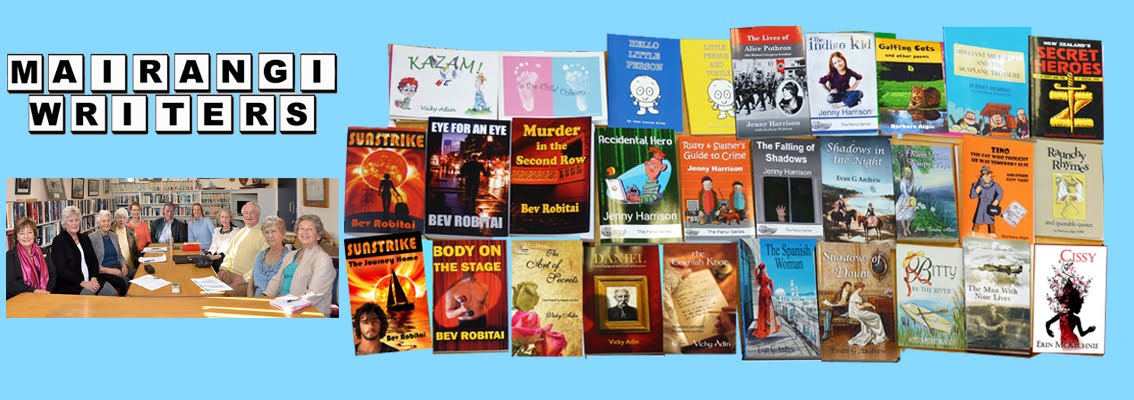Evan Andrew sets out to see a book buyer. An important meeting that he
doesn’t want to miss…
It just started out like any other day, frantic! All went
well until after mid-day I got the call from daughter number two. Youngest grand-daughter
was in the sick bay at school in Epsom, and could I please collect her and take
her home to Coatesville as mother was at that school assisting on a class
visit. Her father was in Wellington on business, my wife Annmarie at North
Shore Hospital visiting a sick friend. I had an appointment at four in the city
with a book buyer, and judging the traffic, and timing, I knew I could just do
it if everything went okay.
Arrived at the school, collected the sick child, turned
over the car key... nothing!! Calmness in a crisis is a trait I have taken on
board throughout life's constant turmoil, so, as grandchild looked at me
imploringly, I assured her that the trusty man from AA would duly arrive, and
we would soon be on our way. Outside it started to pour with rain. I told her
it was just a passing shower and it fortunately stopped fifty-five minutes
later as the AA van pulled up beside me. Thirty-five minutes after that we were
on our way, and luckily the traffic on the western motorway was only just
starting to build up when the words every car driver dreads to hear were
announced.
'Grandad, I think I'm going to be sick.'
'No, no, you’re not,' I replied, desperately trying to
think if I had a bag, or a hat, or anything to be sick in. 'Sing me doe, a
deer, a female deer,' and desperately I forced her to sing with me the entire musical
score of 'The Sound of Music,' while I put my foot down, and thankfully
deposited her into her mother's loving arms.
Time! I made a phone call to the book buyer, got his
answer phone, and explained I could be slightly late because of an emergency, but
I would be there. Back I raced on the motorway, traffic getting a lot heavier,
and finally after much searching found a place to park. The parking meter
wouldn't take any notes and I had no change. Bugger! I would have to wing it!
Raced up Queen Street, into the lift, time four-fifteen. The receptionist gave
me a frosty stare when she got off the phone and when I said I had an
appointment with so and so, sniffed and said, 'Oh, he's not in today, down with
the flu.' Words failed me, and I slunk out of there, back to my... and yes you
guessed it! There under my windscreen wiper was my gift from the Auckland
City Council.
I crawled back home through the five o'clock rush, went inside
and decided I needed a scotch. Only the decanter was empty, and I had no tonic
for a gin, so brandy and water it had to be.
However, at eleven o'clock that night after watching our
Olympic rowers get the gold medal they so richly deserved, the rest of the day
was erased from my mind!
